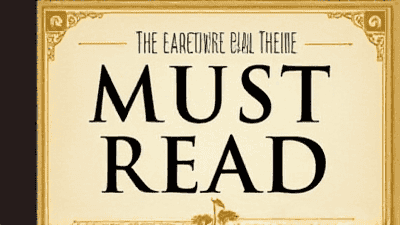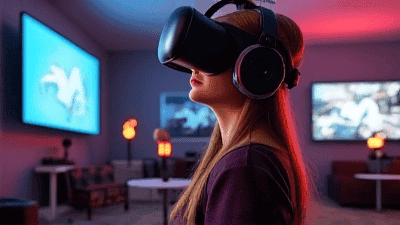
Hobbies, Not Habits: Redefining Retail Therapy as Engaging, Purposeful Entertainment
Retail therapy, traditionally viewed as an impulsive act of purchasing consumer goods to alleviate stress or sadness, often carries connotations of superficiality and fleeting satisfaction. However, a profound shift is underway, transforming this common coping mechanism into a more enriching and purposeful endeavor. The act of shopping for hobbies is emerging as a compelling new form of entertainment, moving beyond instant gratification to foster sustained engagement, skill development, and genuine personal well-being. This article delves into how this evolving trend redefines our relationship with consumption.
This redefinition holds significant implications for consumer psychology, industry trends, and individual well-being. As global societies grapple with increasing stress and a desire for authentic experiences, the pursuit of hobbies offers a tangible pathway to mental fortitude and community connection. The market for hobby-related goods, from art supplies and musical instruments to gaming peripherals and crafting kits, is experiencing a renaissance, driven by individuals seeking meaningful engagement over passive consumption. Understanding this shift is key to comprehending evolving leisure patterns and the burgeoning "experience economy." What impact would it have on our understanding or practice of well-being if we failed to fully comprehend how purposeful hobby shopping enriches lives beyond simple acquisition?
The Evolution of Retail Therapy

From Impulse Buys to Intentional Discoveries
Traditional retail therapy typically involves an unplanned purchase, often of clothing, gadgets, or luxury items, driven by an immediate emotional need for comfort or a temporary mood boost. This pattern, while providing a fleeting dopamine hit, frequently leads to buyer's remorse, clutter, and an unaddressed underlying emotional state. In stark contrast, shopping for a hobby is an intentional, often researched process, characterized by anticipation, learning, and an investment in future engagement. Instead of grabbing a trendy shirt on a whim, one might spend hours researching the perfect set of watercolor paints (pigment quality, lightfastness) or the ideal ergonomic knitting needles (material, size, weight).
This deliberate approach transforms the shopping experience itself into a form of entertainment. The act of browsing specialized stores, comparing materials, reading reviews, and envisioning future projects becomes an integral part of the hobby's allure. It's less about the immediate acquisition and more about the journey of discovery, the promise of skill development, and the sustained satisfaction derived from a creative or intellectual pursuit. For instance, comparing different models of beginner guitars involves learning about tonewoods and pickup configurations, an educational process that deepens commitment to the musical journey. This engagement moves beyond transient pleasure, fostering a sense of purpose and long-term gratification.
Psychological Rewards of Purposeful Consumption
Cultivating Well-being Through Creative Pursuits
The psychological benefits derived from purposeful hobby shopping far surpass the fleeting satisfaction of traditional retail therapy. Engaging in hobbies, whether it's pottery, model building, or gardening, can induce a "flow state," a concept pioneered by psychologist Mihaly Csikszentmihalyi. This state of complete absorption in an activity, where time seems to disappear, is inherently enjoyable and profoundly restorative, fostering a sense of mastery and self-efficacy. The act of selecting tools or materials for such an endeavor is the first step towards achieving this flow, transforming the purchasing process into a mindful investment in future well-being.
Consider the detailed planning involved in setting up a home brewing kit or acquiring specific art materials. This isn't just buying; it's a commitment to learning a new skill, a deliberate choice to enrich one's life. The anticipation built during the research and purchase phase contributes significantly to the overall enjoyment and psychological reward. Unlike the often-regretted impulse buy, hobby-focused shopping provides a sustainable source of satisfaction, as the items acquired are catalysts for ongoing creative expression and personal growth. The table below illustrates the stark contrast between the two approaches, highlighting the deeper, more lasting impact of hobby-focused consumption on an individual's psychological health.
| Retail Therapy Type | Immediate Feeling | Long-term Satisfaction | Impact on Well-being |
|---|---|---|---|
| Impulse Fashion | Fleeting excitement | Often regret/clutter | Superficial, temporary boost |
| Hobby-Focused | Anticipation, joy | Skill, accomplishment, community | Deep, sustained engagement |
| Gadget Upgrade | Novelty, status | Can be short-lived, planned | Varies; sometimes enriching |
As shown, the impact on well-being dramatically differs. While all forms of shopping can offer some immediate pleasure, only hobby-focused acquisition consistently leads to deeper, more sustained satisfaction, contributing positively to mental health through continued engagement and skill development. This data underscores that the intentionality behind hobby shopping transforms it into a therapeutic act that genuinely enhances life quality.
Building Community and Skill Through Shopping

Connecting with Others and Personal Growth
Shopping for hobbies is not merely an individual pursuit; it often serves as a gateway to vibrant communities and significant personal growth. The specialized nature of hobby products naturally fosters environments where enthusiasts can connect, share knowledge, and collaborate. A visit to a local game store (seeking a new board game) or an art supply shop (looking for a unique medium) often involves conversations with knowledgeable staff or fellow patrons, sharing tips, project ideas, and resources. This interaction transcends a simple transaction, building social bonds and a sense of belonging among like-minded individuals.
Furthermore, the act of acquiring materials for a new hobby inherently involves an investment in skill development. When a burgeoning musician purchases their first instrument or a aspiring painter invests in a quality easel and canvases, they are not just buying objects; they are buying into a journey of learning, practice, and mastery. The research phase of finding the right tools and understanding their applications is an educational process in itself, deepening one's appreciation and commitment to the chosen craft. This continuous learning, facilitated by thoughtfully selected tools and resources, contributes significantly to personal growth, boosting confidence and fostering new capabilities. These experiences demonstrate how hobby shopping evolves into a multifaceted, enriching form of entertainment, extending far beyond the moment of purchase.
Conclusion
The evolution of retail therapy into purposeful hobby shopping marks a significant cultural shift, redefining our relationship with consumption from impulsive gratification to sustained engagement and personal enrichment. This article has explored how this transformation moves beyond fleeting pleasures, instead fostering deep psychological benefits such as flow states, mastery, and a sense of accomplishment. The deliberate act of researching, selecting, and acquiring items for a hobby cultivates anticipation and provides a foundation for long-term satisfaction, distinguishing it sharply from traditional, often superficial, retail therapy. This mindful approach to shopping serves as an investment in one's well-being, skill development, and connection to a broader community, solidifying its role as a genuinely entertaining and therapeutic pursuit.
Looking ahead, this trend is poised to continue its ascent, driven by a growing global emphasis on mental well-being, experiential living, and sustainable consumption. Future developments may see an even greater integration of digital platforms with physical retail, creating immersive shopping experiences that blend virtual discovery with hands-on engagement. The rise of niche hobby markets, supported by online communities and specialized retailers, will further democratize access to diverse creative and intellectual pursuits. Macro scientific policies encouraging lifelong learning and interdisciplinary integration, combined with technological iterations like augmented reality for product visualization, could amplify the appeal of hobby-focused entertainment. Continuous research into consumer psychology and the neuroscience of engagement will be crucial to fully understand and harness the profound benefits of this reimagined retail experience, ensuring it remains a powerful force for personal growth and societal enrichment.
Frequently Asked Questions (FAQ)

Q: Is hobby shopping still just consumerism in disguise? A: While hobby shopping undeniably involves the acquisition of goods, it fundamentally differs from traditional, often mindless, consumerism due to its underlying intent and long-term impact. Traditional consumerism often focuses on immediate gratification, driven by advertising or social pressures, resulting in purchases that may offer only fleeting pleasure and contribute to clutter or waste. Hobby shopping, however, is characterized by purpose and intention. When someone buys a set of woodworking tools or a specialized camera lens, they are not simply consuming; they are making a deliberate investment in a future activity, a skill, or a passion. The value derived isn't just from owning the item, but from the ongoing process of learning, creating, and engaging with the hobby. For instance, a new painter buying brushes and canvases is acquiring tools for self-expression and personal growth, not merely collecting items. This distinction is crucial: hobby shopping is about enabling experiences and fostering development, transforming the act of buying into a meaningful step towards sustained well-being and purposeful engagement, rather than a superficial attempt to fill an emotional void.
Q: How can I ensure my hobby shopping truly becomes "entertainment" and not a financial burden? A: To ensure hobby shopping remains a source of entertainment and doesn't become a financial burden, mindful planning and strategic engagement are key. Firstly, budgeting is essential. Before diving into a new hobby, research the typical start-up costs and ongoing expenses, then allocate a realistic amount from your discretionary income. Remember, you don't need the most expensive equipment to begin; often, quality entry-level gear is perfectly sufficient. Secondly, focus on the process of discovery, not just acquisition. The entertainment value comes not just from the purchase, but from the research, learning about different options, and envisioning future projects. This exploration itself is a joyful activity that costs nothing. Thirdly, start small and incrementally upgrade. Instead of buying a full pottery studio, begin with a small hand-building kit. If the passion grows, then consider larger investments. Finally, explore alternatives to buying new. Many hobbies have thriving second-hand markets, or you might borrow tools from friends or community workshops. For example, local libraries sometimes lend out tools or offer craft classes where materials are provided. By prioritizing thoughtful selection, embracing the journey of discovery, and managing your resources wisely, hobby shopping can remain a delightful and enriching form of entertainment without straining your finances.








